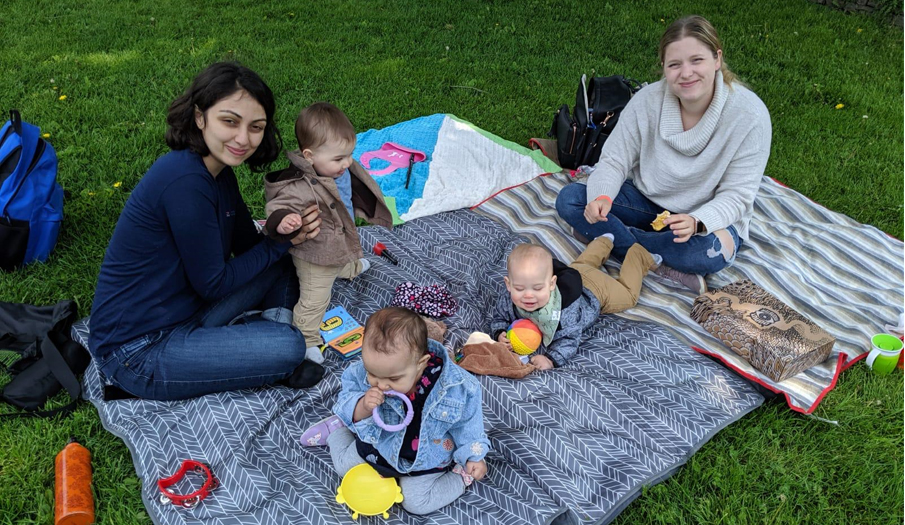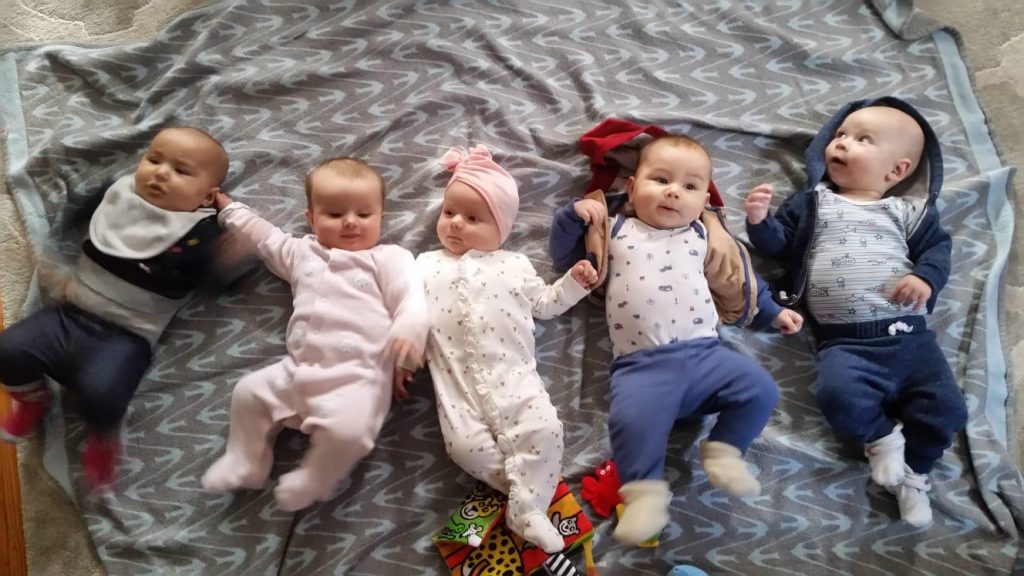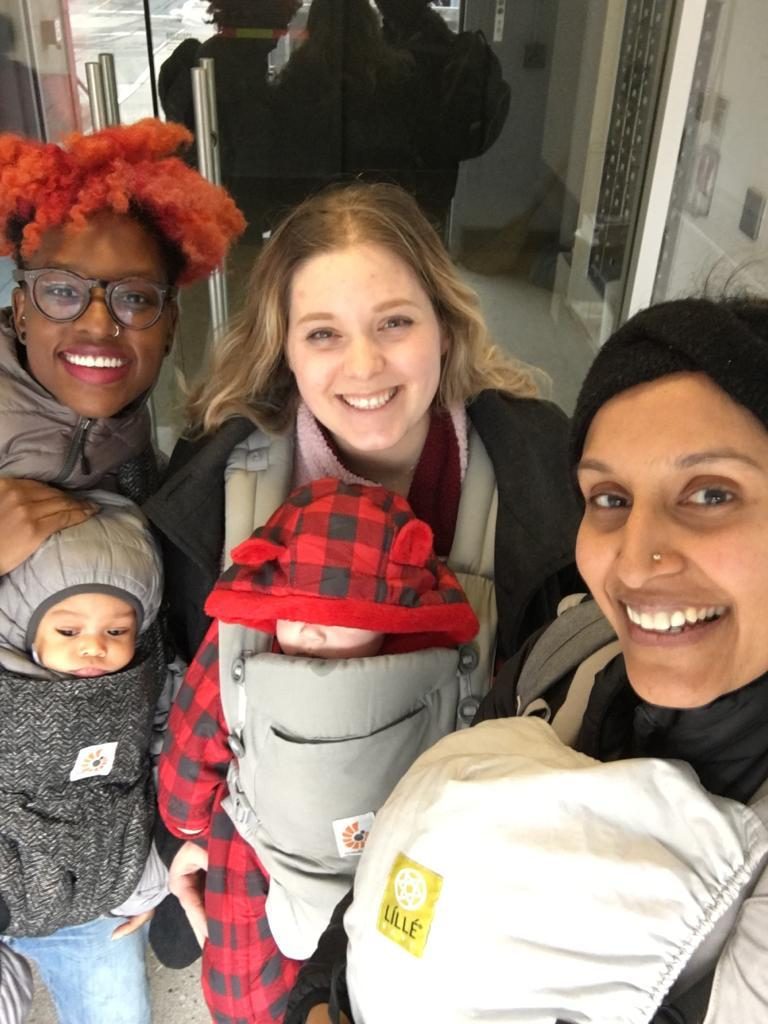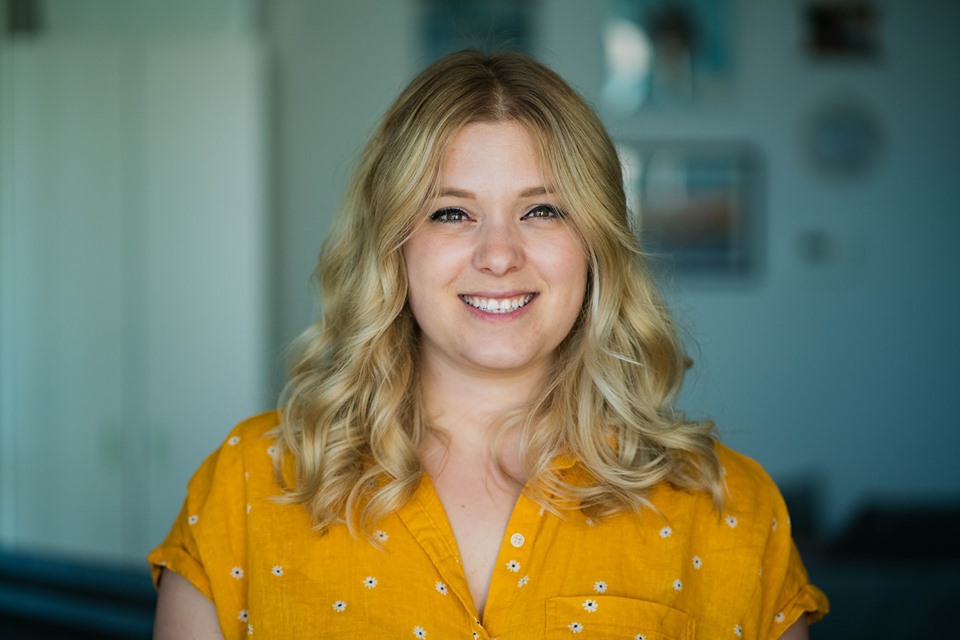Prenatal Class Was My Fourth Trimester Lifeline

“I am at a complete loss, can anybody help?” I typed frantically.
I was about two months postpartum and my son had decided to go on his first nursing strike. “Otis is refusing to nurse from my right side, and I know he isn’t getting enough milk. I just don’t know what to do. HELP!”
Tears were streaming down my face. I hadn’t slept in at least two months, I was beyond exhausted, and the fourth trimester was weighing heavily on me. I felt like a shell of the woman I once was and now I was failing at this task that was so important and was meant to come so naturally.
“P sometimes refuses my left as the let down is much faster. Try expressing a bit first?”
“I’ve had full-blown nursing aversion where L doesn’t want the breast at all.”
“I had the same thing with E… she sometimes prefers my left and refuses the right.”
Within minutes, I had seven wonderful humans who knew exactly what I was going through, talking me down off my “you’re a terrible mother who can’t do anything right” ledge. With a few typed words, I was able to reevaluate the situation and approach it with a renewed sense of calm. And of course, once I calmed down my son followed suit and latched.
At that moment, I felt lost and completely confused, but thankfully I didn’t have to feel alone.

I was able to turn to a group of women who a mere four months ago had been strangers to me. Now, they knew some of the most intimate details of life—which breast produced the most milk, how long it took me to go to the bathroom post-delivery, that I was afraid to touch my c-section scar, and a litany of other personal facts that I willingly and openly shared.
We all met in our prenatal birthing class, seven women, all pregnant in the middle of what felt like the hottest summer Toronto ever had.
I wasn’t convinced that I needed a prenatal class. Scheduled for an induction because of a high-risk pregnancy, it seemed silly to me to learn about the signs of early labour and how to comfortably labour at home. The thought of spending over $300 on something other than diapers? It seemed like a steep price at the time. But I finally made the decision, typed in my credit card information, and booked a class for my husband and me.
We didn’t bond right away. Maybe it was our nerves or the fact that we were all preparing for the biggest event in our lives. But once the class was over, and a group chat was created, we began to connect. Eight women, from diverse backgrounds, with different ideas of what it means to be a mother, came together with non-judgemental, unwavering support to lift one another up.
We were living parallel lives, experiencing the same highs and lows, surviving the hell and heaven that encompasses the fourth trimester, together, but still apart. In retrospect, $300 was a small price to pay for a group of people who truly understood—and to this day understand—what I was going through when I was going through it.
The fourth trimester is the hardest thing I have ever experienced—and I was in labour for 46 hours before my emergency c-section. This is a truth for a lot of women. We go through this incredible change, both physically and emotionally, and suddenly all the focus is on the baby.
We’re told to come back after six weeks for a check-up and approximately 40% of us don’t even do that. Postpartum depression is affecting 15% of us and more than 50% of those women are going undiagnosed. The fourth trimester can be harrowing, and the needs of mothers’ everywhere are going unmet.
While it certainly isn’t a sound replacement for proper medical postpartum support and care, having a group chat with people trudging through the diaper rashes, sleep deprivation, and breastfeeding alongside me truly saved me from myself more than once.
Where our doctors failed us, we lifted one another up. From mastitis and thrush to fevers and the common cold, we brought our issues to each other. We supported each other with remedies and tricks we picked up or read about, and a stern suggestion to see a doctor when it was really necessary. Our knowledge was collective, especially in those first three months.
We can talk about the importance of a village all day long. We know that having your family, friends, and partner supporting you during that initial postpartum period is essential. But when you are in the thick of your fourth trimester, you need so much more than your built-in village. As much as they want to, they just can’t fully comprehend what it is you’re going through. Having someone, anyone, who is going through the same thing as you at the same time is invaluable.

The women I met in my prenatal class have become an integral part of my village. With just a few words, they get it. On the nights when I had barely slept, when I had spilt my freshly pumped milk, when my son just wouldn’t sleep, I had these women to chat, to listen, to console, to support.
And thank god, at 12 months postpartum, I still have them just a few keystrokes away.
















